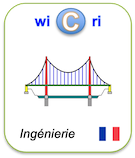Sunyaev–Zeldovich fluctuations from the first stars?
Identifieur interne : 000372 ( Main/Exploration ); précédent : 000371; suivant : 000373Sunyaev–Zeldovich fluctuations from the first stars?
Auteurs : S. Peng Oh ; Asantha Cooray [États-Unis] ; Marc Kamionkowski [États-Unis]Source :
- Monthly Notices of the Royal Astronomical Society [ 0035-8711 ] ; 2003-06.
English descriptors
Abstract
WMAP's detection of high electron‐scattering optical depth τe suggests substantial star formation at high redshift z∼ 17 ± 5. On the other hand, the recovered σ8∼ 0.84 ± 0.04 argues against a cluster Sunyaev–Zeldovich (SZ) origin for the observed small‐scale cosmic microwave background (CMB) fluctuation excess, which generally requires σ8∼ 1.1. Here we consider the effects of high‐redshift star formation on the CMB. We derive a fairly model‐independent relation between τe and the number of ionizing photons emitted per baryon Nγ, and use this to calibrate the amount of high‐redshift supernova activity. The resulting supernova remnants Compton cool against the CMB creating a Compton y distortion y∼ few × 10−6 within observational bounds. However they also create small‐scale SZ fluctuations, which could be comparable with SZ fluctuations from unresolved galaxy clusters. This raises the exciting possibility that we have already detected signatures of the first stars not just once, but twice, in the CMB.
Url:
DOI: 10.1046/j.1365-8711.2003.06708.x
Affiliations:
Links toward previous steps (curation, corpus...)
Le document en format XML
<record><TEI wicri:istexFullTextTei="biblStruct"><teiHeader><fileDesc><titleStmt><title xml:lang="en">Sunyaev–Zeldovich fluctuations from the first stars?</title><author><name sortKey="Peng Oh, S" sort="Peng Oh, S" uniqKey="Peng Oh S" first="S." last="Peng Oh">S. Peng Oh</name></author><author><name sortKey="Cooray, Asantha" sort="Cooray, Asantha" uniqKey="Cooray A" first="Asantha" last="Cooray">Asantha Cooray</name></author><author><name sortKey="Kamionkowski, Marc" sort="Kamionkowski, Marc" uniqKey="Kamionkowski M" first="Marc" last="Kamionkowski">Marc Kamionkowski</name></author></titleStmt><publicationStmt><idno type="wicri:source">ISTEX</idno><idno type="RBID">ISTEX:6B9500EAABCAFFDA985E8618A2FCA153FBB74E7F</idno><date when="2003" year="2003">2003</date><idno type="doi">10.1046/j.1365-8711.2003.06708.x</idno><idno type="url">https://api.istex.fr/document/6B9500EAABCAFFDA985E8618A2FCA153FBB74E7F/fulltext/pdf</idno><idno type="wicri:Area/Main/Corpus">000195</idno><idno type="wicri:Area/Main/Curation">000195</idno><idno type="wicri:Area/Main/Exploration">000372</idno><idno type="wicri:explorRef" wicri:stream="Main" wicri:step="Exploration">000372</idno></publicationStmt><sourceDesc><biblStruct><analytic><title level="a" type="main" xml:lang="en">Sunyaev–Zeldovich fluctuations from the first stars?</title><author><name sortKey="Peng Oh, S" sort="Peng Oh, S" uniqKey="Peng Oh S" first="S." last="Peng Oh">S. Peng Oh</name></author><author><name sortKey="Cooray, Asantha" sort="Cooray, Asantha" uniqKey="Cooray A" first="Asantha" last="Cooray">Asantha Cooray</name><affiliation wicri:level="1"><country xml:lang="fr">États-Unis</country><wicri:regionArea>Theoretical Astrophysics, Mail Code 130‐33, Caltech, Pasadena, CA 91125</wicri:regionArea><wicri:noRegion>CA 91125</wicri:noRegion></affiliation></author><author><name sortKey="Kamionkowski, Marc" sort="Kamionkowski, Marc" uniqKey="Kamionkowski M" first="Marc" last="Kamionkowski">Marc Kamionkowski</name><affiliation wicri:level="1"><country xml:lang="fr">États-Unis</country><wicri:regionArea>Theoretical Astrophysics, Mail Code 130‐33, Caltech, Pasadena, CA 91125</wicri:regionArea><wicri:noRegion>CA 91125</wicri:noRegion></affiliation></author></analytic><monogr></monogr><series><title level="j">Monthly Notices of the Royal Astronomical Society</title><idno type="ISSN">0035-8711</idno><idno type="eISSN">1365-2966</idno><imprint><publisher>Blackwell Science Ltd</publisher><pubPlace>23 Ainslie Place , Edinburgh EH3 6AJ , UK . Telephone (0131) 226 7232 Fax (0131) 226 3803</pubPlace><date type="published" when="2003-06">2003-06</date><biblScope unit="volume">342</biblScope><biblScope unit="issue">1</biblScope><biblScope unit="page" from="L20">L20</biblScope><biblScope unit="page" to="L24">L24</biblScope></imprint><idno type="ISSN">0035-8711</idno></series><idno type="istex">6B9500EAABCAFFDA985E8618A2FCA153FBB74E7F</idno><idno type="DOI">10.1046/j.1365-8711.2003.06708.x</idno><idno type="ArticleID">MNR6708</idno></biblStruct></sourceDesc><seriesStmt><idno type="ISSN">0035-8711</idno></seriesStmt></fileDesc><profileDesc><textClass><keywords scheme="KwdEn" xml:lang="en"><term>cosmic microwave background</term><term>galaxies: formation</term><term>intergalactic medium</term></keywords></textClass><langUsage><language ident="en">en</language></langUsage></profileDesc></teiHeader><front><div type="abstract" xml:lang="en">WMAP's detection of high electron‐scattering optical depth τe suggests substantial star formation at high redshift z∼ 17 ± 5. On the other hand, the recovered σ8∼ 0.84 ± 0.04 argues against a cluster Sunyaev–Zeldovich (SZ) origin for the observed small‐scale cosmic microwave background (CMB) fluctuation excess, which generally requires σ8∼ 1.1. Here we consider the effects of high‐redshift star formation on the CMB. We derive a fairly model‐independent relation between τe and the number of ionizing photons emitted per baryon Nγ, and use this to calibrate the amount of high‐redshift supernova activity. The resulting supernova remnants Compton cool against the CMB creating a Compton y distortion y∼ few × 10−6 within observational bounds. However they also create small‐scale SZ fluctuations, which could be comparable with SZ fluctuations from unresolved galaxy clusters. This raises the exciting possibility that we have already detected signatures of the first stars not just once, but twice, in the CMB.</div></front></TEI><affiliations><list><country><li>États-Unis</li></country></list><tree><noCountry><name sortKey="Peng Oh, S" sort="Peng Oh, S" uniqKey="Peng Oh S" first="S." last="Peng Oh">S. Peng Oh</name></noCountry><country name="États-Unis"><noRegion><name sortKey="Cooray, Asantha" sort="Cooray, Asantha" uniqKey="Cooray A" first="Asantha" last="Cooray">Asantha Cooray</name></noRegion><name sortKey="Kamionkowski, Marc" sort="Kamionkowski, Marc" uniqKey="Kamionkowski M" first="Marc" last="Kamionkowski">Marc Kamionkowski</name></country></tree></affiliations></record>Pour manipuler ce document sous Unix (Dilib)
EXPLOR_STEP=$WICRI_ROOT/Wicri/Amerique/explor/CaltechV1/Data/Main/Exploration
HfdSelect -h $EXPLOR_STEP/biblio.hfd -nk 000372 | SxmlIndent | more
Ou
HfdSelect -h $EXPLOR_AREA/Data/Main/Exploration/biblio.hfd -nk 000372 | SxmlIndent | more
Pour mettre un lien sur cette page dans le réseau Wicri
{{Explor lien
|wiki= Wicri/Amerique
|area= CaltechV1
|flux= Main
|étape= Exploration
|type= RBID
|clé= ISTEX:6B9500EAABCAFFDA985E8618A2FCA153FBB74E7F
|texte= Sunyaev–Zeldovich fluctuations from the first stars?
}}
|
| This area was generated with Dilib version V0.6.32. | |


